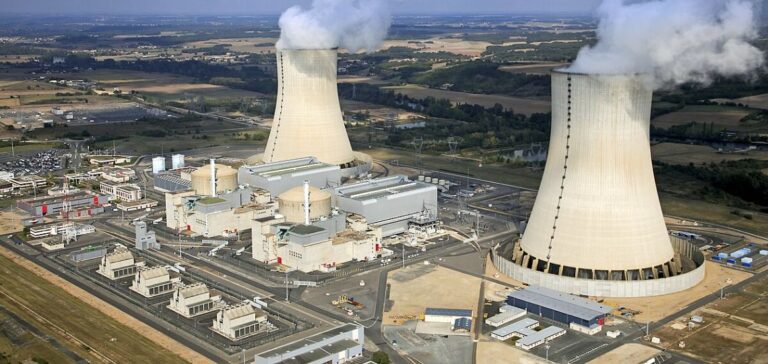The European Union has launched the EU-CONVERSION project, a €12.8 million initiative funded by the Horizon 2020 program. Its objective is to accelerate the conversion of high-performance research reactors to fuels using low-enriched uranium (LEU). This transition is deemed necessary to limit the risks associated with the proliferation of highly enriched uranium (HEU), which is still used in some facilities.
Research reactors under scrutiny
The project targets two strategic reactors in Europe: FRM-II in Germany and the Jules Horowitz Reactor (JHR) in France, which is expected to begin operations in the 2030s. The FRM-II reactor, operated by the Technical University of Munich (TUM), currently runs on fuel enriched to more than 95% uranium-235. However, its operating license, granted in 2003, stipulates that it must transition to a lower-enriched fuel as soon as a viable alternative becomes available.
Fissile materials under testing
Two types of fuel are currently under study in this program: one based on uranium-molybdenum (U-Mo) and another using uranium silicide (U2Si3). These materials will be subjected to extreme irradiation conditions at the BR2 research reactor of the Belgian Nuclear Research Center (SCK-CEN). The tests, which include exposure to thermal fluxes exceeding 500 W/cm², will be conducted over multiple cycles lasting 55 to 75 days between 2027 and 2028.
A strategic European collaboration
EU-CONVERSION relies on the expertise of a consortium of academic and industrial players, including TUM, Framatome, the French Alternative Energies and Atomic Energy Commission (CEA), the Laue-Langevin Institute, and several other partners based in France, Belgium, and the Czech Republic. The irradiation tests and subsequent analyses will extend until 2030, assessing the feasibility of adopting these new fuels.
A technical and economic challenge
While the conversion of research reactors presents a challenge due to their specific technical requirements, the stakeholders involved believe that the results obtained with the BR2 reactor will validate the safety and performance of the new fuels. According to Jared Wight, program manager at SCK-CEN, increasing thermal constraints during testing will be critical to ensuring reliability equivalent to that of current fuels.
Gradual adoption of new solutions
The EU-CONVERSION initiative is part of a global effort to reduce HEU use in civilian reactors. Several facilities have already transitioned, but some research reactors still require technological advancements due to their specific needs. Markus Blume, Bavaria’s Minister of Science, reaffirmed Germany’s commitment to maintaining high scientific performance while adopting safer fuels.






















